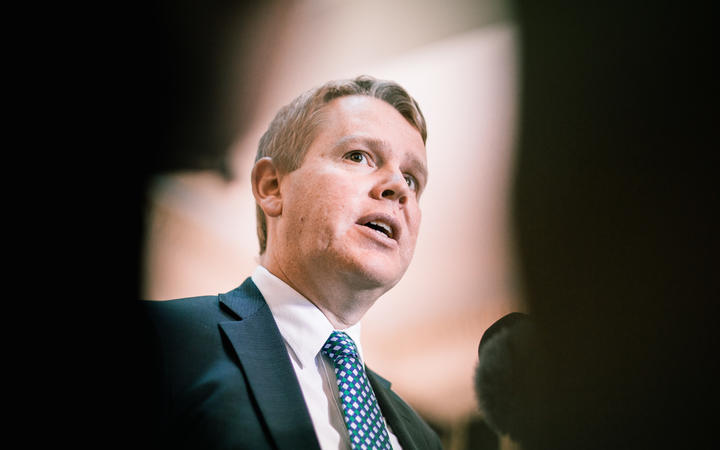
Fronting media in Auckland this afternoon, Hipkins spoke about apparent heightened tension surrounding the campaign following reports of an allegedly politically motivated attack on the home of 21-year-old Hana Rawhiti Maipi-Clarke, Te Pāti Māori’s Hauraki-Waikato candidate and fourth on the party list.
It comes after Labour candidate Angela Roberts said she was “slapped” by an aggressive member of the public while at a local election debate during the week.
Hipkins said Roberts had taken some time to process the event.
”She should not have had to put up with that.”
Roberts had referred the matter to police, which was “absolutely appropriate.”
“I think there has been more racism and misogyny in this election than any other previous one. There are clearly some parties that are deliberately trying to persecute minorities.
Hipkins said if Roberts wanted to take some time off, she would have his full support.
“I hope the political parties can work together to ensure the safety of candidates during this election.”
‘It’s going to be close’
He said there are safety concerns with candidates going into the public to meet people.
Meanwhile, he’d had very positive feedback from the public about his efforts at the leaders debate on Wednesday.
“I have no problems with people getting passionate during the election, people should be passionate but they can do that without getting up in someone’s grill.”
Hipkins says in the last two weeks before the election, he will continue to lead by example. Labour are going to do significantly better than the polls are suggesting, he claimed.
“It’s going to be a very close election... We’ve picked up a lot of momentum in the last week.”
Hipkins said Labour is the party for the diverse community that New Zealand has.
Poring over the numbers
Hipkins said National’s fiscal plan would take billions out of benefit spending.
“That’s before they start filling holes in their plan,” he said.
Labour’s finance spokesperson Grant Robertson yesterday said he would be poring over National’s numbers in the coming days and any holes he’s discovered could be declared by Hipkins.
National’s plan showed, if elected, the party would return to surplus in the same year as Labour (2027) but would do so by $800 million more.
The plan included cutting $2 billion over four years in welfare payments by indexing benefit levels to inflation rather than wage growth.

However, two economists have expressed concerns about the plan’s impact on low-income people, with one saying it could lead to “real social disaster”.
Hipkins yesterday claimed thousands of families and children would be pushed into policy by tying benefit levels to inflation.
“Contrary to what the National Party think, it’s not easy to live on a benefit,” Hipkins said.
“People on a benefit generally live a hand-to-mouth existence. Cutting their benefits in order to pay for tax cuts would make life very difficult for those families.”
Labour claims that National’s plan - which would start in April next year - would see a single person on the over-25 rate of the Jobseeker benefit losing about $315 in the next year, $1023 by 2025 and $2261 by 2028. These are cumulative figures.
Labour released its welfare policy yesterday, including a promise to peg the abatement threshold to minimum wage increases from 2025/26. Currently, someone on a benefit can earn up to $160 a week without their benefit being cut, or about seven hours’ work on the current minimum wage.
This follows National’s welfare policy of punitive measures for beneficiaries who fail to meet their ready-for-work obligations, which experts say is not evidence-based and could lead to more hardship.
National leader Christopher Luxon said there were several factors in the poverty equation beyond benefit levels, such as fuel prices.
National says it wouldn’t increase fuel taxes in the next term and would cut the regional fuel tax in Auckland, though Labour says National’s climate change policies would push up emissions compared to Labour’s, and see fuel prices increase 40c a litre - a claim rejected by National.
Luxon said the main way to reduce poverty was to get beneficiaries into jobs. “We grow the economy is what we need to do, and get people from welfare into work.”
Economist Cameron Bagrie told the Herald the impact of benefit levels on poverty depended on which measure of inflation National wanted to use.
“Headline CPI [Consumer Price Index] is driven by both domestic and international factors. For someone on a benefit, domestic factors are probably a lot more relevant. If they’re using headline CPI, beneficiaries could go backwards in real terms.”
National confirmed to the Herald that its fiscal plan is modelled on pegging benefit levels to headline CPI.











